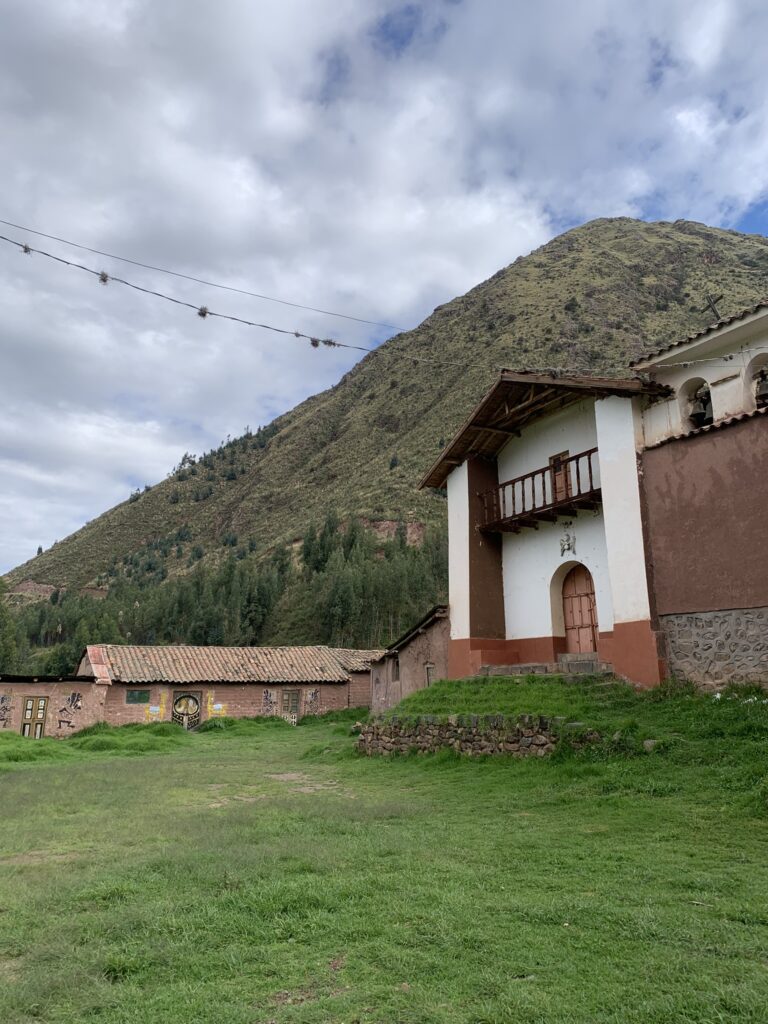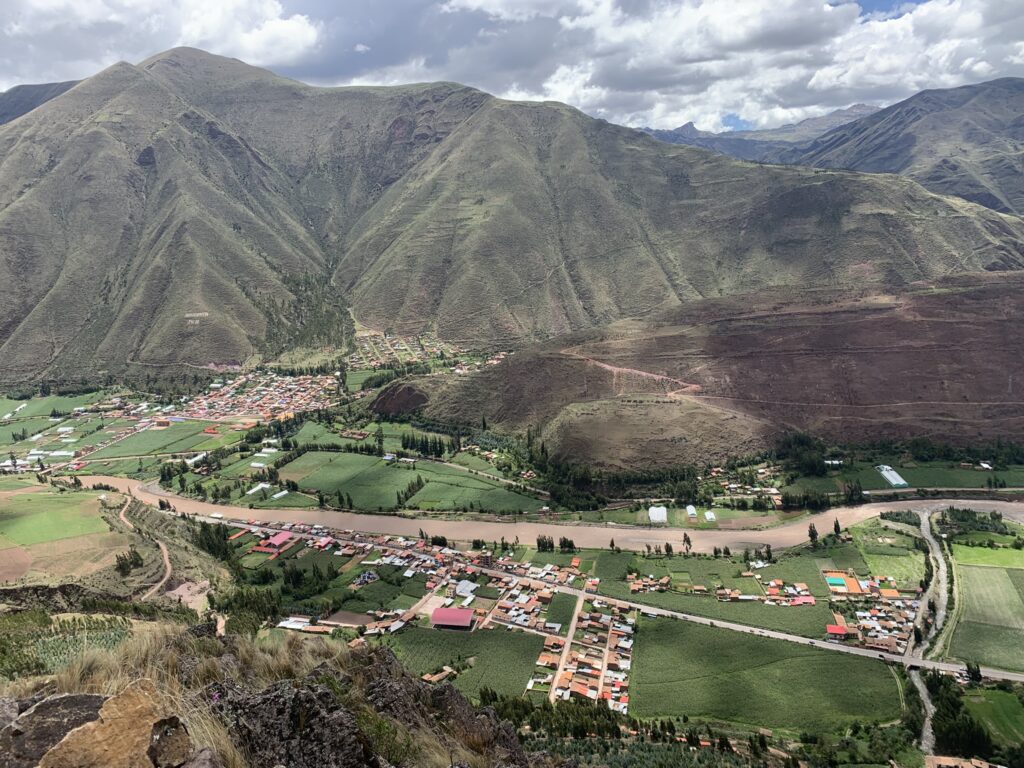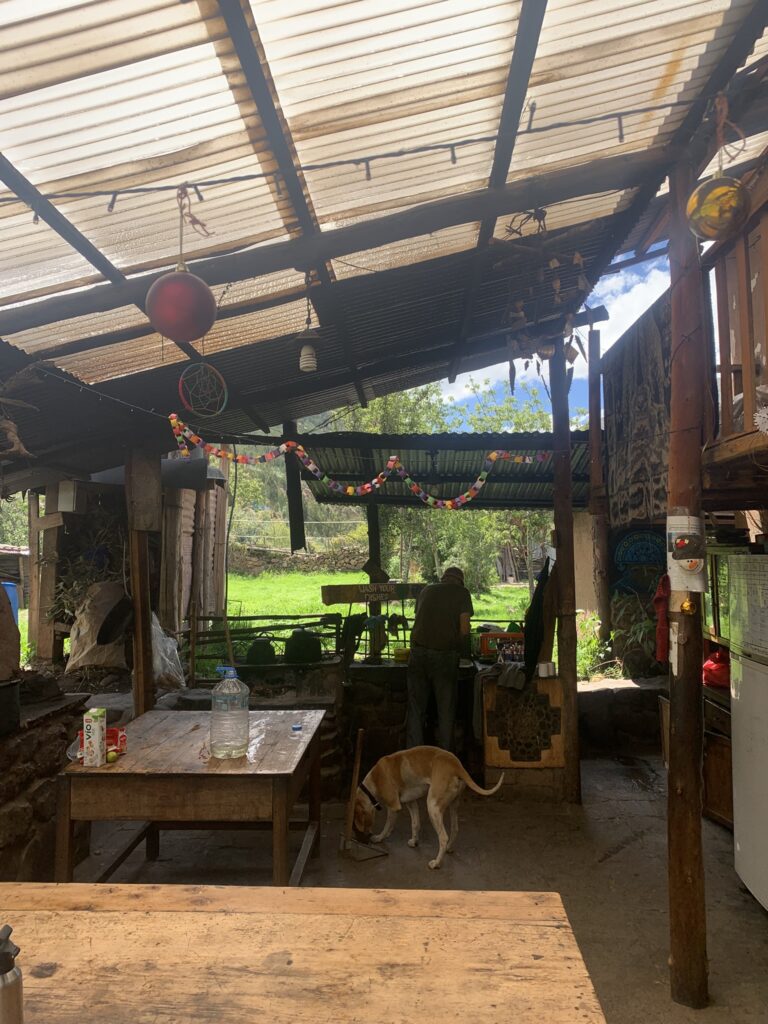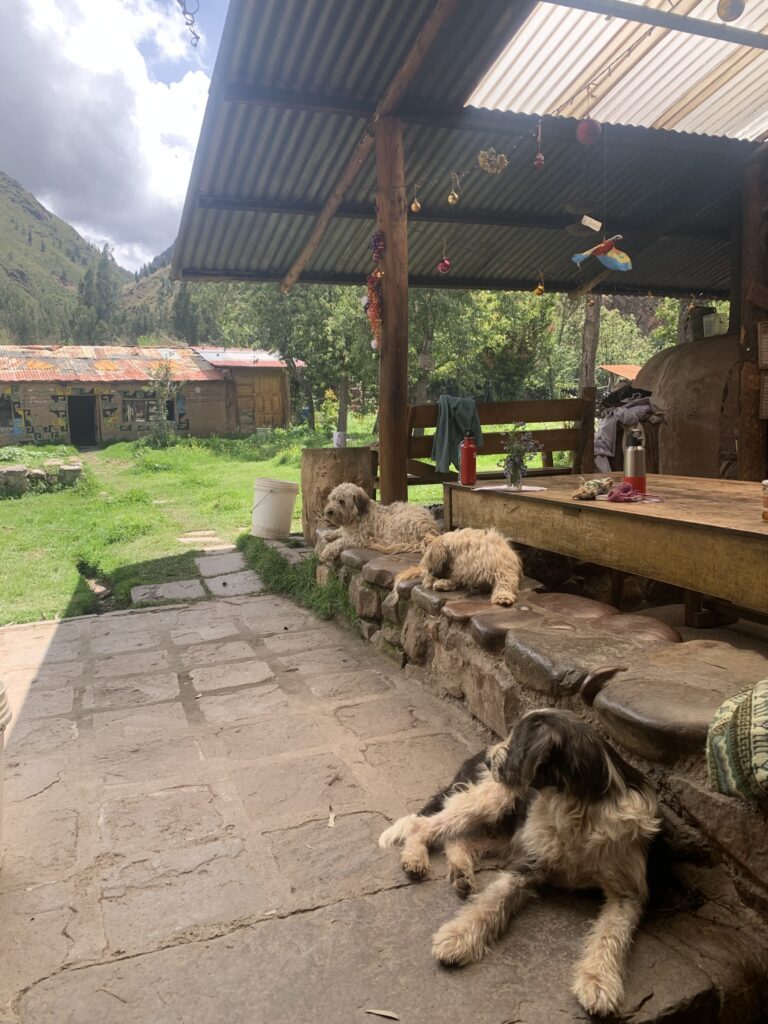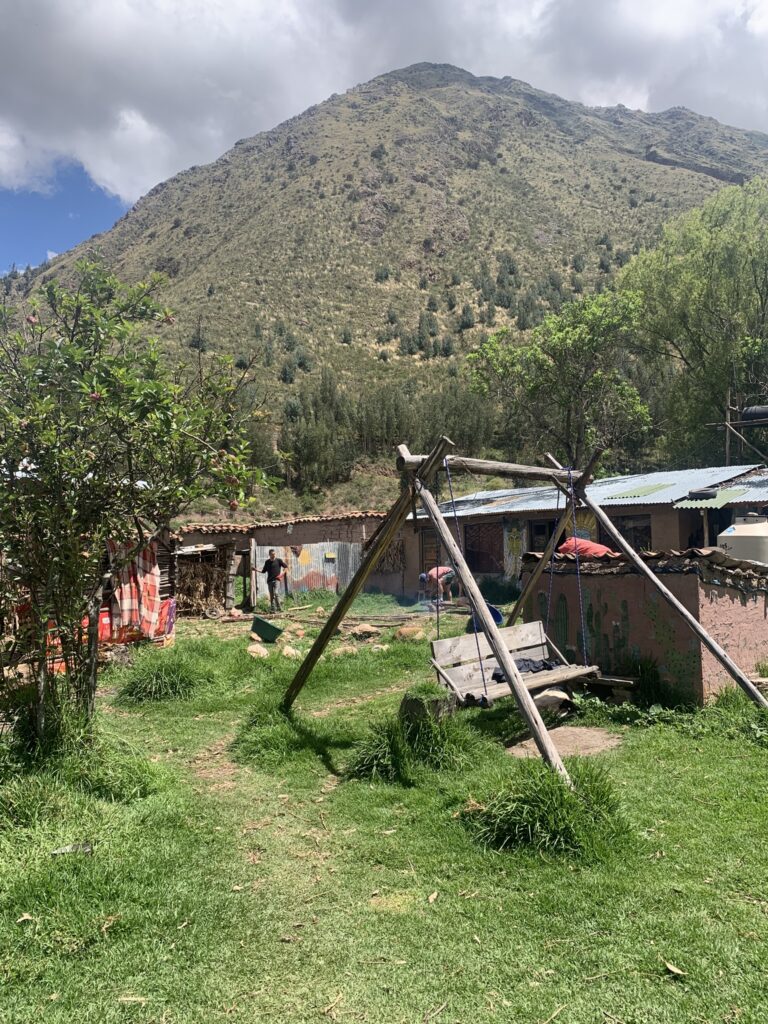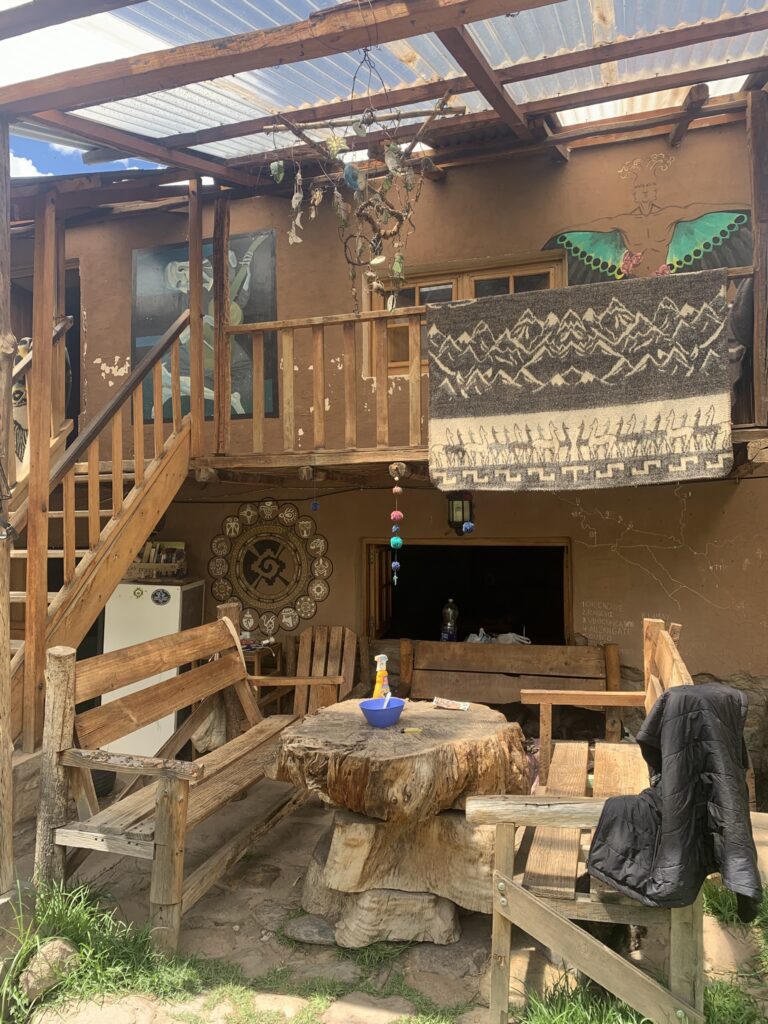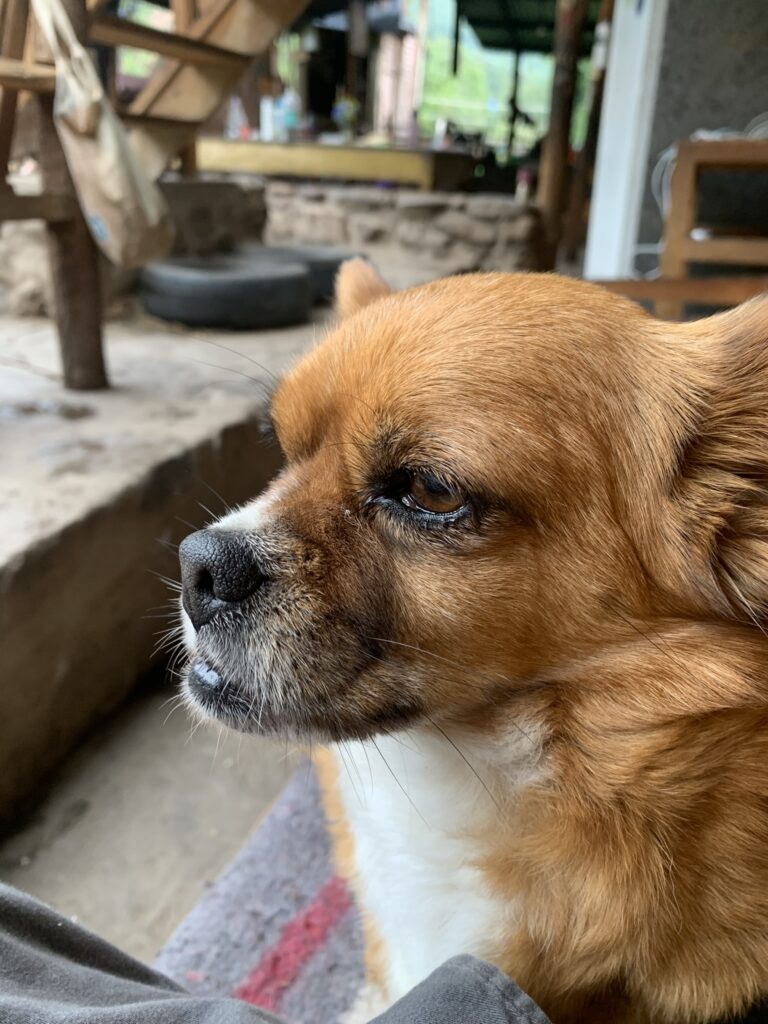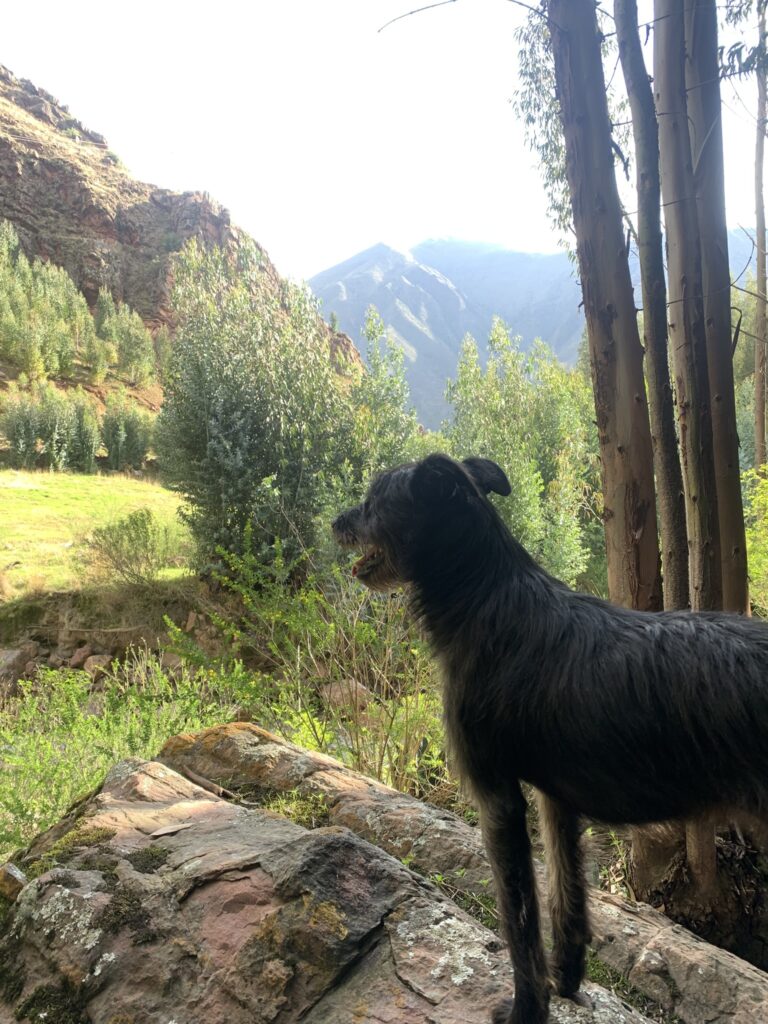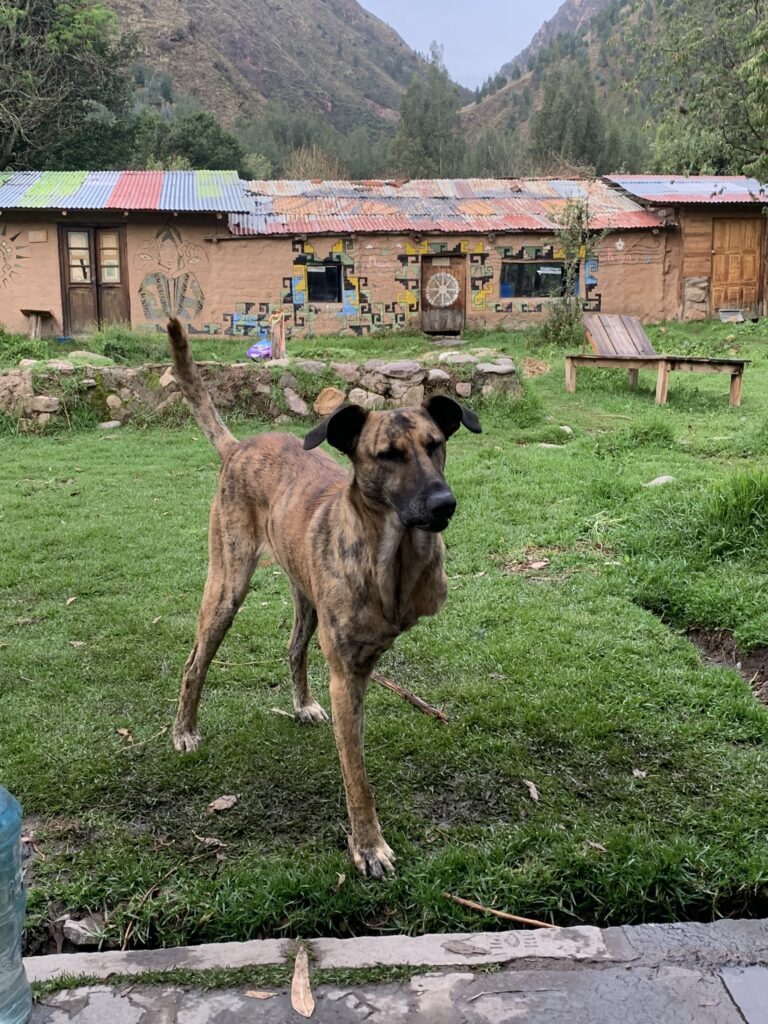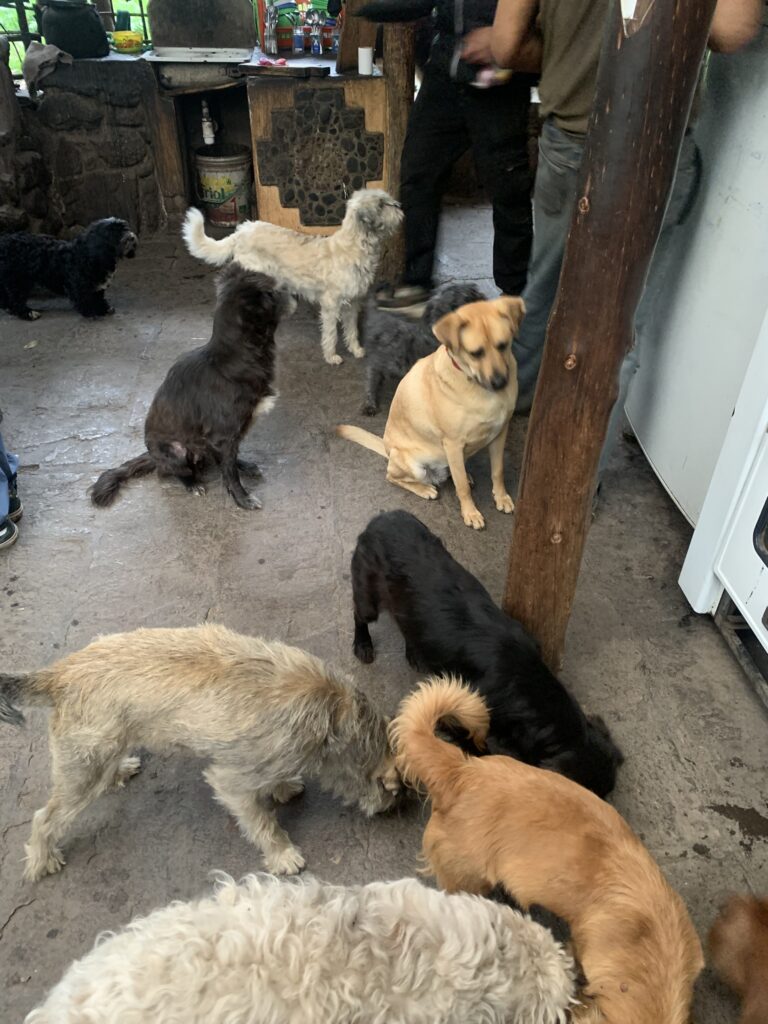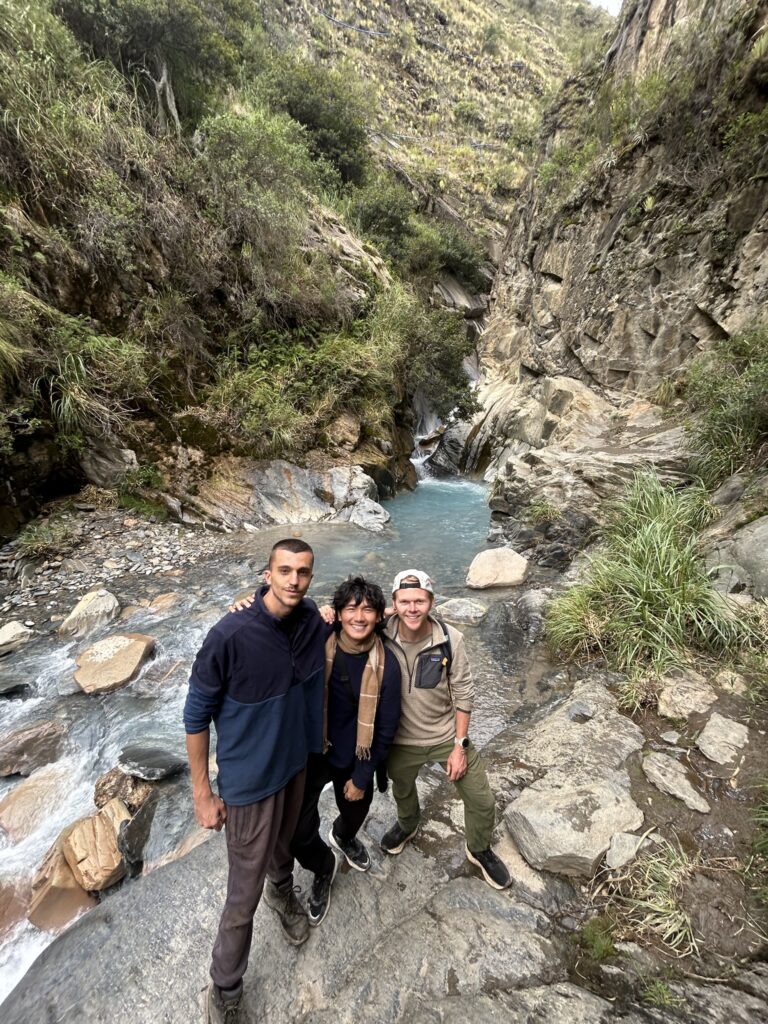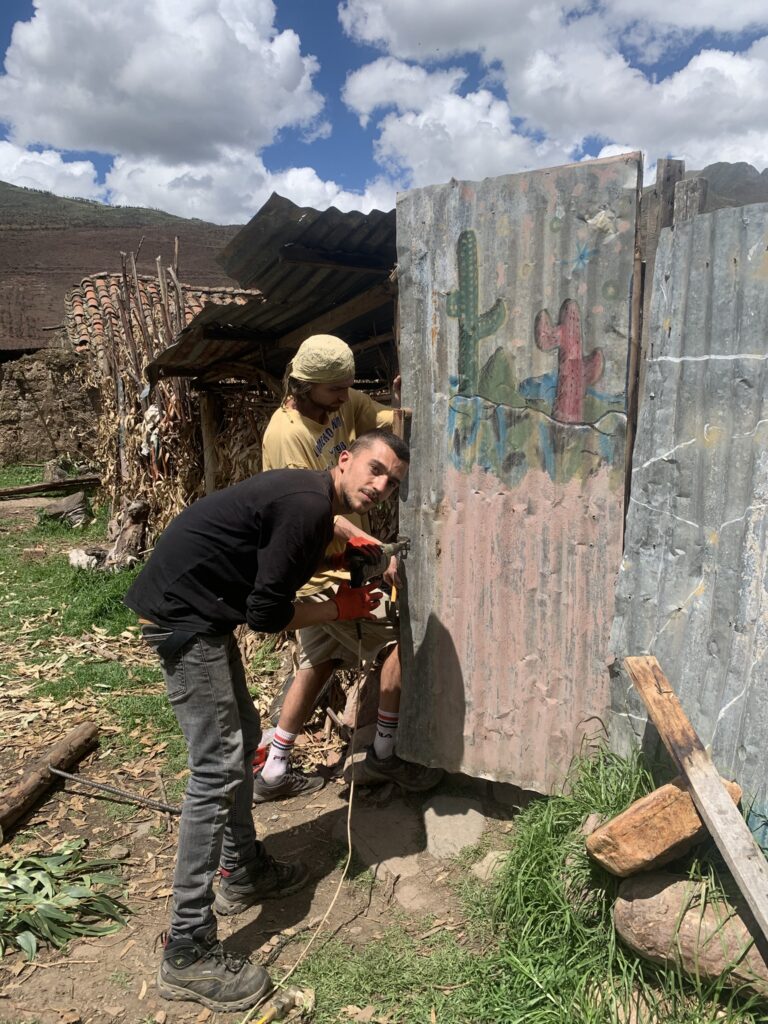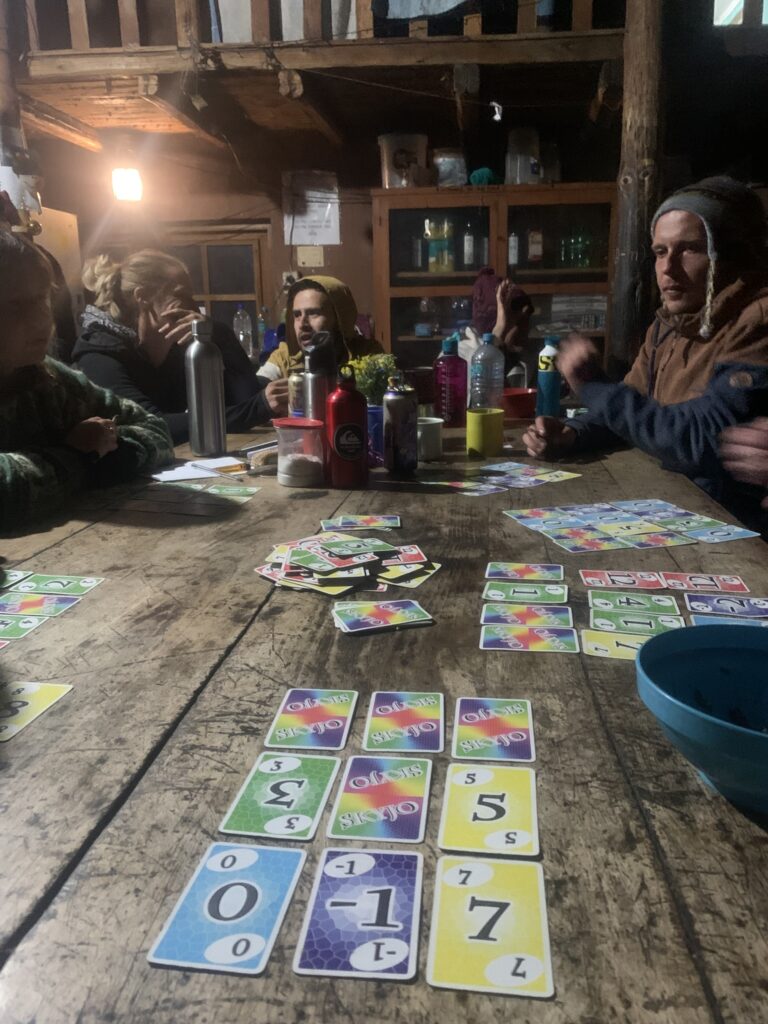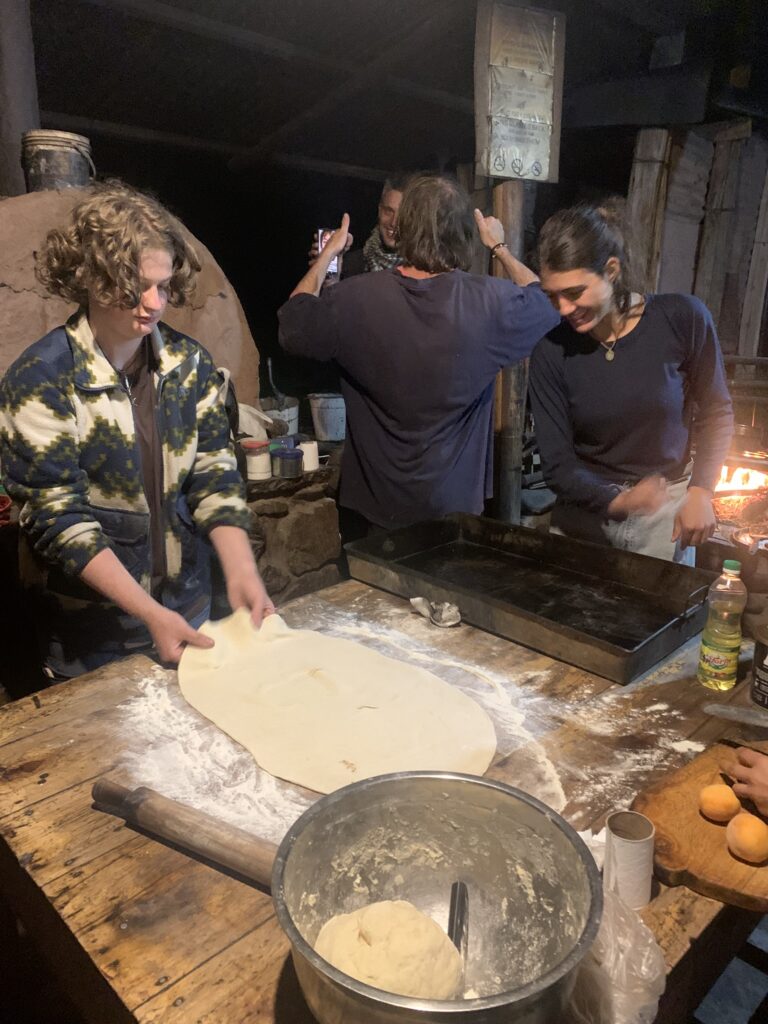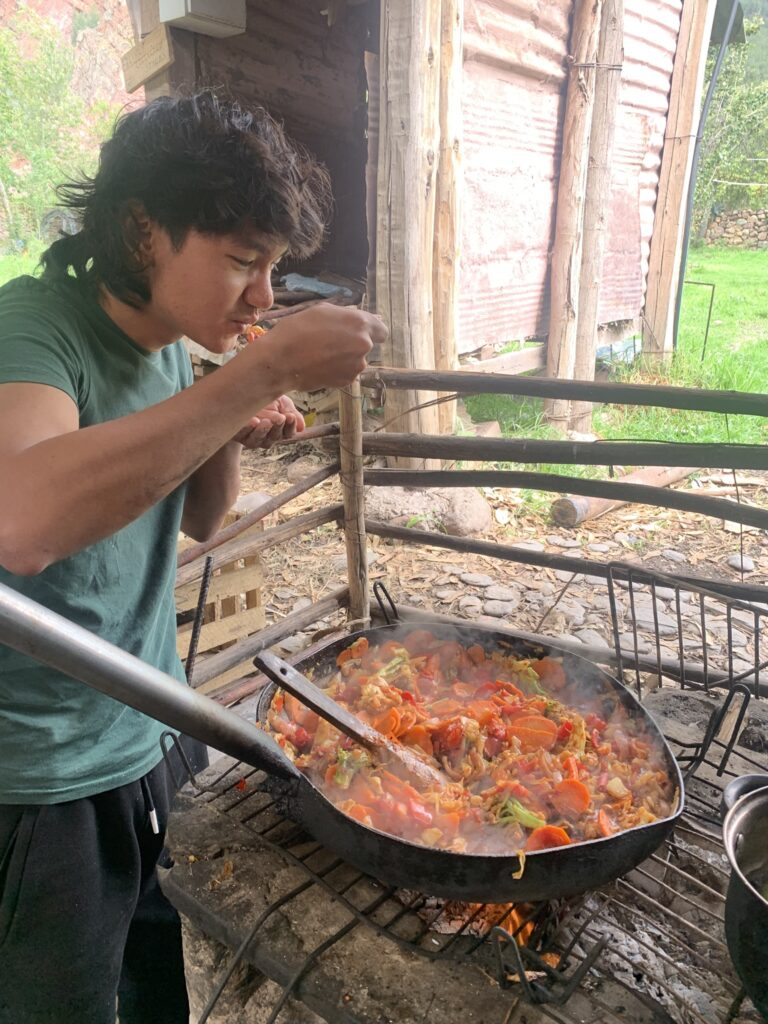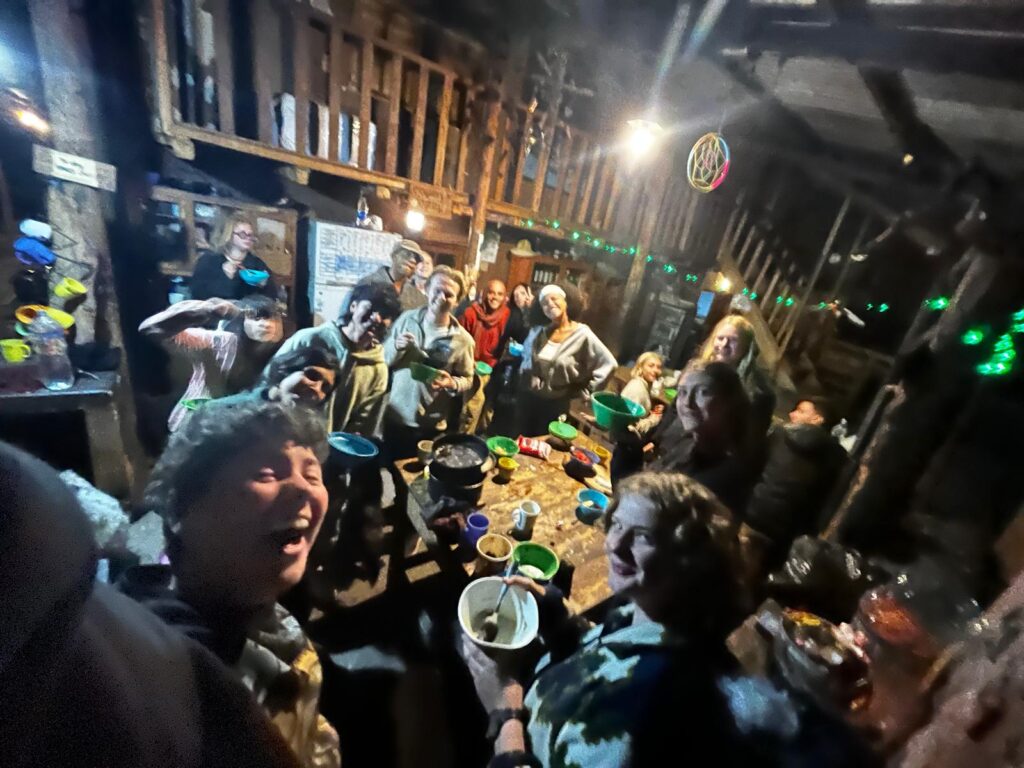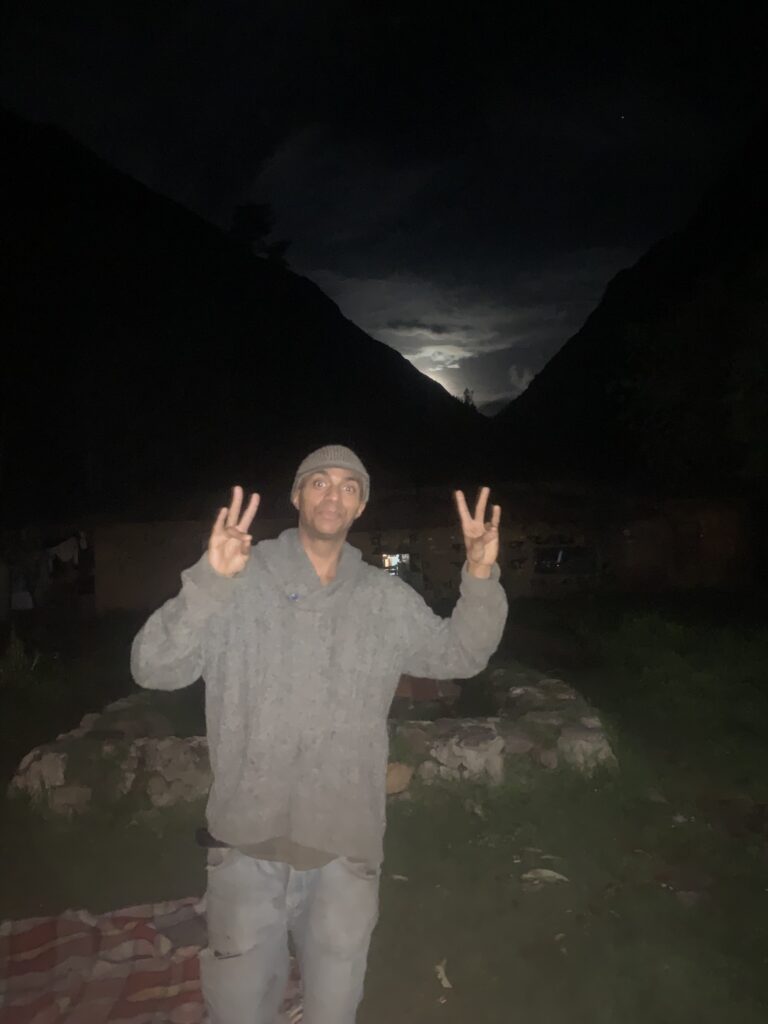Written December 2024. I was delayed finishing this after my phone was stolen, but I finally restored my note file and photos to wrap it up!
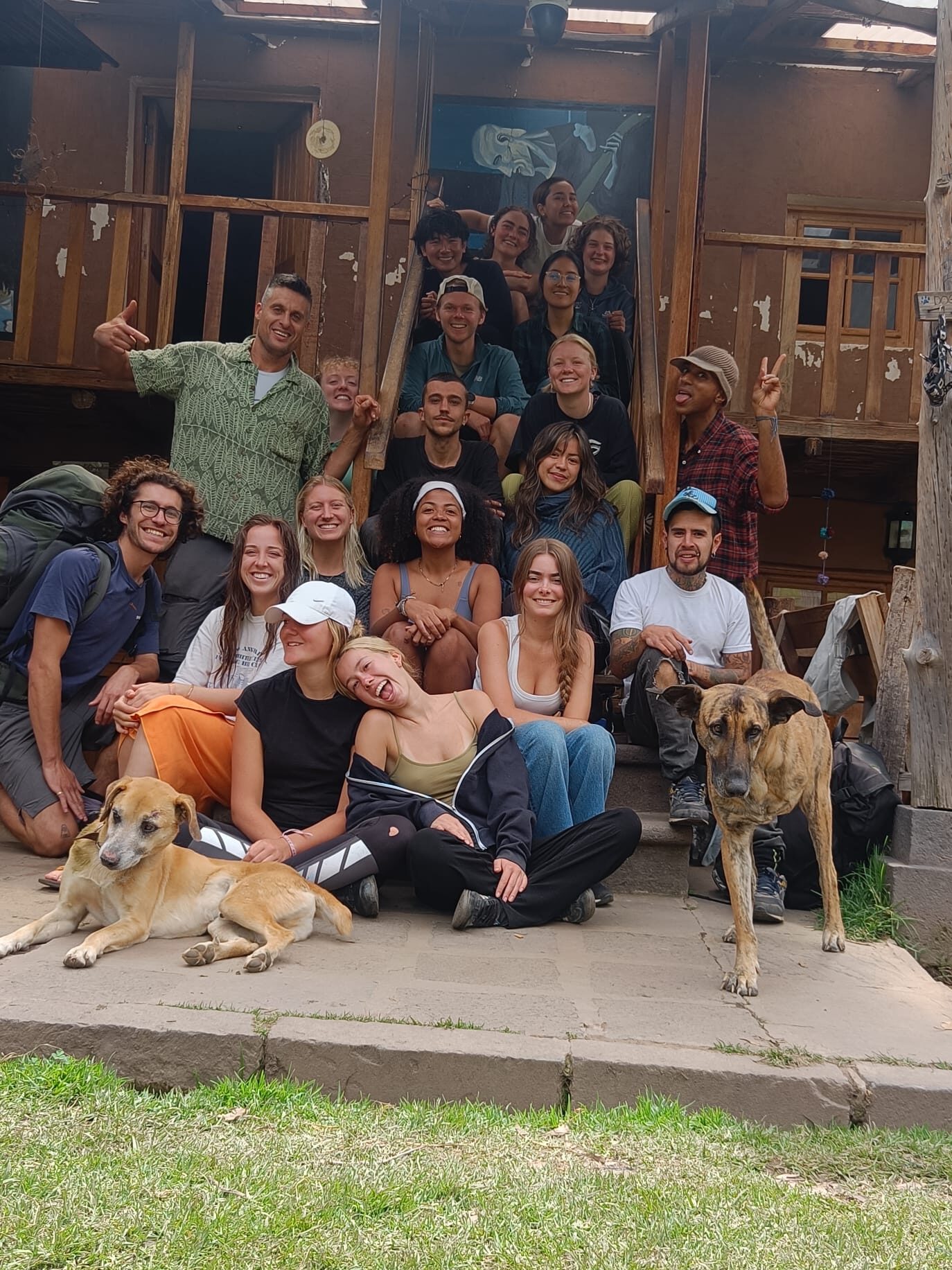
The goal of my traveling is not to see new places.
My true hope is to become something different than when I began. I don’t presume what that change should be. But it only seems inevitable that when exposed to completely new environments and cultures, something will change. Drastically new information demands to be considered, to be felt, to be scrutinized. What does this mean, for me and for the world? The moment passes, but an imprint is left, and nothing is the exactly the same as it was.
Buying a plane ticket to a strange far away land is a good bet to achieve this, but not by itself. Even away from home, it’s possible to stick to your comfort zone. There’s hundreds of choices remaining on where to go, where to stay, where to eat, who to talk to. Venturing beyond this zone is hard because it requires a constant awareness and intentional pushes onto new paths. It’s far from making a one time choice. Although there may be numerous tours and activities presented to you, these are not all there is to traveling.
Arriving at a new place, the choices available to you can seem obvious. You are not the first tourist and not the last. A stroll through town and you can be inundated with a seemingly infinite number of tours and activities catering to tourists. Many times, you don’t even have to leave the hostel to have convenient opportunities presented to you.
For my last month in Peru, I wanted to make space for something different. I had done the popular 4 day Salkantay trek, seen Machu Picchu, enjoyed the esteemed cuisine of Lima (mmmm ceviche), and explored the magic of Cusco, a bustling travel haven for people from all over the world, once the capital of the expansive Incan empire. I could continue on my way to the next city in the popular tourist circuit, which I would have been quite excited for. However, my mind couldn’t leave the Sacred Valley, where Machu Picchu lies among a long stretch of small towns and Incan ruins. I was enamored with its natural beauty, the stillness, and the sacred reputation that evidently commanded the respect and admiration of the local people. I had loved the few times I had ran while there, with flat paths winding along the river flowing through the valley, nestled tightly between mountains. I passed kids playing, small family run restaurants, and farms abound with cows, chickens, and llamas. This is where I wanted to spend my remaining time. I wasn’t sure what exactly I wanted to do there, if only just to see what it felt like to just exist for a while in this beautiful place, somewhere quiet and away from the organized activities.
I applied for a few volunteering positions in the area and then waited for my fate. Soon enough, I was on my way to help out at a massive dog shelter, located even farther away than the small towns I had already ventured to. There would be about 25 total volunteers from around the world and about just as many dogs. I didn’t know what I was in for.
I boarded a bus and went on my way. There certainly was no other tourist on this bus. Approaching the tiny town where the shelter was, I asked the driver to drop me off and his surprise was obvious. I take a look around before heading into to the hacienda, the area is mostly farmland and has a short line of buildings along this singular road. It’s quiet, and I don’t see a single person from my current view. I knew then that this was exactly the adventure that I wanted.
Entering and latching the hefty metal gate behind me, the dogs are alerted. I see a dozen come sprinting toward me, barking with all their strength. It’s mayhem. Some are large and intimidating, some are tiny and goofy, a couple are hopping on three legs. I crouch and do my best to look friendly and calm. Over my time at the hacienda, they slowly would warm up to me as I tried to get familiar with each of them. For many of them, you start as a stranger and must diligently earn their trust. It’s clear whose world you’re entering.
I arrive just in time for dinner, walking into the outdoor dining area and seeing the entire group ready to eat together. It was a warm welcome and I felt at ease very quickly for such a strange place.
The next morning, I can now get a good look at the place by the light of day. The most prominent structure visible from the entrance is a colonial Spanish church built on top of an Incan temple. The property overall is quite large, dotted with several buildings ands cabins, each filled with bunk beds. Most of the common areas are found outside – including the kitchen and dining area. Although a little cooler being located in the mountains, I get the impression that the temperature seems comfortable enough all year long to practically live outside. This entire area is surrounded by a large perimeter wall, keeping (most of) the dogs inside. Outside of the walls are large fields with crops, a pasture for the two horses and donkey, and finally a forest at the base of the mountains.
The facilities are quite limited – there is no heating, no running water for the toilets, no drinking water, and the cooking is exclusively done over a wood fire. Thankfully, there was a hot shower and WiFi. I would say that I am already a bit used to backcountry conditions, however I do believe there is value for anyone in trying out a lifestyle that looks very different from the comforts of home. Traveling doesn’t have to be glamorous. Sure, it did require more time and effort spent on the little necessities each day. Toilet tanks have to be manually filled with each use from nearby buckets, which were previously carried from larger water tanks. Water jugs for drinking must be bought and carried from the nearby market. A fire must be prepared in advance and maintained properly for cooking. It may sound menial but I believe it can be beneficial that such tasks demand forethought and attention. It’s easy to think about a hundred other things when everything is one button push. Here, everything is deliberate.
An average day for me started with a run in the morning along the nearby river. I came to recognize some of the locals that I would pass by as they lead their cows along the path. I came back to breakfast already prepared for the group, a great big pot of oatmeal. On a good day, I had a banana and my homemade peanut butter to add in my bowl. Instant coffee was the caffeine of choice here, using some of the already boiled water from the kettle over the fire. Work would be starting soon, so I would scout out what I might want to work on for the day. The work varied but most of it was for the upkeep of the property. The dogs were actually pretty low maintenance other than at meal times. Care must be taken at meal times to leash all the large dogs or bullies in their places, otherwise chaos could erupt while food is stolen from smaller dogs. Diets for each of them must be remembered as well, with some able to have leftover rice with their dog food or those who need wet food. Much of the work for the property was centered around collecting wood needed for the fires. Small trees would be cut and dragged from the nearby forest, and a team would work to cut these to size, split the larger logs, and stack them in the kitchen ready for use. The water buckets must be filled and delivered to the bathrooms as well as to the pasture for the horses. Dog poop must be picked up around the whole property. There were bigger projects as well to either repair something or to construct something new, such as a small covered sleeping area for two new dogs that had been brought in during my stay. One of my longer projects involved creating a new wooden handle for the large axe for splitting logs, Work only lasted until lunch, and afterwards followed most people’s time to chill. For me, it was a combination of laying in the sun, playing with the dogs, reading, or some intense matches of ping pong. Depending on the day, it may be your turn for either cooking or cleaning dishes. Meals were predetermined and the ingredients provided, so cooking duty was working with a team of 2-3 to make the best of what you were given. This was easily my favorite job. The meals were straightforward, but cooking for 25 people over a fire is another game entirely. All meals were vegan – you would find a huge collection of veggies and a grain of rice or pasta on the table. Occasionally there would be something a bit more extravagant, like cooking pizzas in the clay oven, and one night some of us elected to make fried chicken and fries as a special celebration. This night especially was chaotic, with one huge pot of oil for the fries and another for the chicken going at the same time side by side. You can imagine the difficulty in preparing these quantities of food and attempting to finish them together with only minimal supplies and a small fire. It was a bit stressful but I got a kick from adrenaline rush. After dinner, most would stick around in these outdoor common areas to talk, play some card games, and have a tea. Some nights we would watch a movie in the small theatre room or do karaoke for an occasional party night.
The people are just as eclectic as the dogs. People from all over the world have traveled to Peru and have made the very same bus ride to this tiny town as I did. Why are they here? This group would be a typical sight in the popular cities, but seeing them here seemed to defy logic, even though I am one of them.
That each of us chose to come here seems to be enough of a reason itself to become friends. Although I feel most travelers I run into have similar interests and mindsets as I do, this seems to go one level deeper. They also wanted something different, to discover something new in the mountains. There’s artists, authors, musicians. There’s video creators, architects, yogis. For some, this is a vacation, for some an ideal place to remote work, and for others it’s a means to earn meals and a place to sleep. Peru seemed like the place many were coming not to see with their own eyes, but with the eyes of a new version of themselves.
It seemed that this place was a source of energy and inspiration for many of the volunteers. At any moment you could go for a walk and you might find someone journaling, another reading, another playing an instrument, another drawing, another writing a book, another making a video. These weren’t people wanting to fill their lives with stuff, or to travel by checking off as many places as they can. They are seeking an absence of stuff so that they may better tune into an energy beyond themselves see what energy fills the void, and for some to put that energy onto paper.
Perhaps the most intriguing of these new friends was Bernie. From the moment we met, he constantly spoke of “living in the fifth dimension” and “escaping the matrix.” These were ideas foreign to me, but I couldn’t help but keep turning them over in my head as I spent my quiet days on the land. At their essence, it seemed to me to describe a way of living that aims to avoid some of the pitfalls ever too common at the core of a modern society – materialism, fame, reputation, over consumption, waste, fighting, fear, judgment. It’s easy to get caught up in these things when you’re completely surrounded by it – it’s an infectious energy. Even if you’re not completely surrounded by it, that negativity can still be amplified by the constant noise, distractions, and busyness characteristic of a modern lifestyle. But if you can remove yourself from these environments, you create space to draw more energy from something more pure – being outside, rewarding labor, living off your own means, and tight knit communities. The combination of space and this pure energy can also lead to a rich inner life of thinking and feeling deeply. Of course it’s no guarantee to be a lifestyle free of issue, but the idea is that by creating more empty space, literally and figuratively, you isolate these problems rather than amplify them.
These ideas are why Bernie had chosen to come here and stay for quite some time. Originally from the US, he had given up a life seeking money and status. There are very simple principles part of the daily life at the hacienda – cooking nourishing food, physical work, spending the vast majority of the day outside, and socializing as a group. Other than choosing the occasional movie from a huge DVD collection, there’s not many choices to make in these circumstances. Compare this to the seemingly endless possibilities presented to us each day in a modern environment and you will begin to understand the implications. For me, it’s a place where it’s hard not to feel deeply at peace.
Although I had come to better understood Bernie’s principles by the end of my stay, I still couldn’t say what it might mean for my life, or if I had come to form my own opinion on the matter. Do I really think that “the matrix”, aka a modern urban society, is a bad thing? This would seem like an extreme conclusion – taking a stance against the way a majority of the planet is living. Do you truly have to live off the grid to put these principles to practice?
I can’t say I have an answer, but I believe these ideas will shape the choices I make for my future. I already feel a detachment from some things I used to value – a respectable career with growth potential, making enough money to save a large chunk for retirement, chasing a certain social image, even keeping up with pop culture and brands. The things I grew up learning what I “should” be doing, things considered important for my job, and things I’m exposed to from people around me. There’s nothing inherently wrong with these, but I began to feel that when I returned to a more normal life, there may be a more meaningful way I could spent my time and energy, and still receive enough in return to live simply and happily.
When I decided to start on this journey, I intentionally left the ending open ended. There was something telling me that this would be a new branch in my life, that at the end I might not want to simply resume my original trajectory. That this wasn’t just an extra long vacation, but rather a new beginning with no end date. In fact, I would have rather not defined this experience as “one year” of traveling. It was just easier that way when I first shared my intentions with those in my life. I suppose it also gave me comfort in a way, making me feel that I had at least some semblance of a plan. It’s a pretty arbitrary length, but what’s important is that the wholeness of it felt significant. Sure, 6 months is a long time to travel, to be sure. At 9 months, that’s impressive. But one whole year – that feels different.
When I say there’s no true end date, of course I understand that the traveling I do in its current form is not limitless. That is to say that I cannot always be a tourist, forever consuming. I will have to produce, to make my own contributions. I can’t say I have a clear picture on what this looks like, but I’m convinced that even in work, I can capture at least part of the magic that I feel from traveling. Traveling is misleading in this way, as for many it calls to mind a suitcase, a flight, and seeing the sights. To me, it can be a willingness to drop your comforts and whole heartedly embrace something beyond the self.
